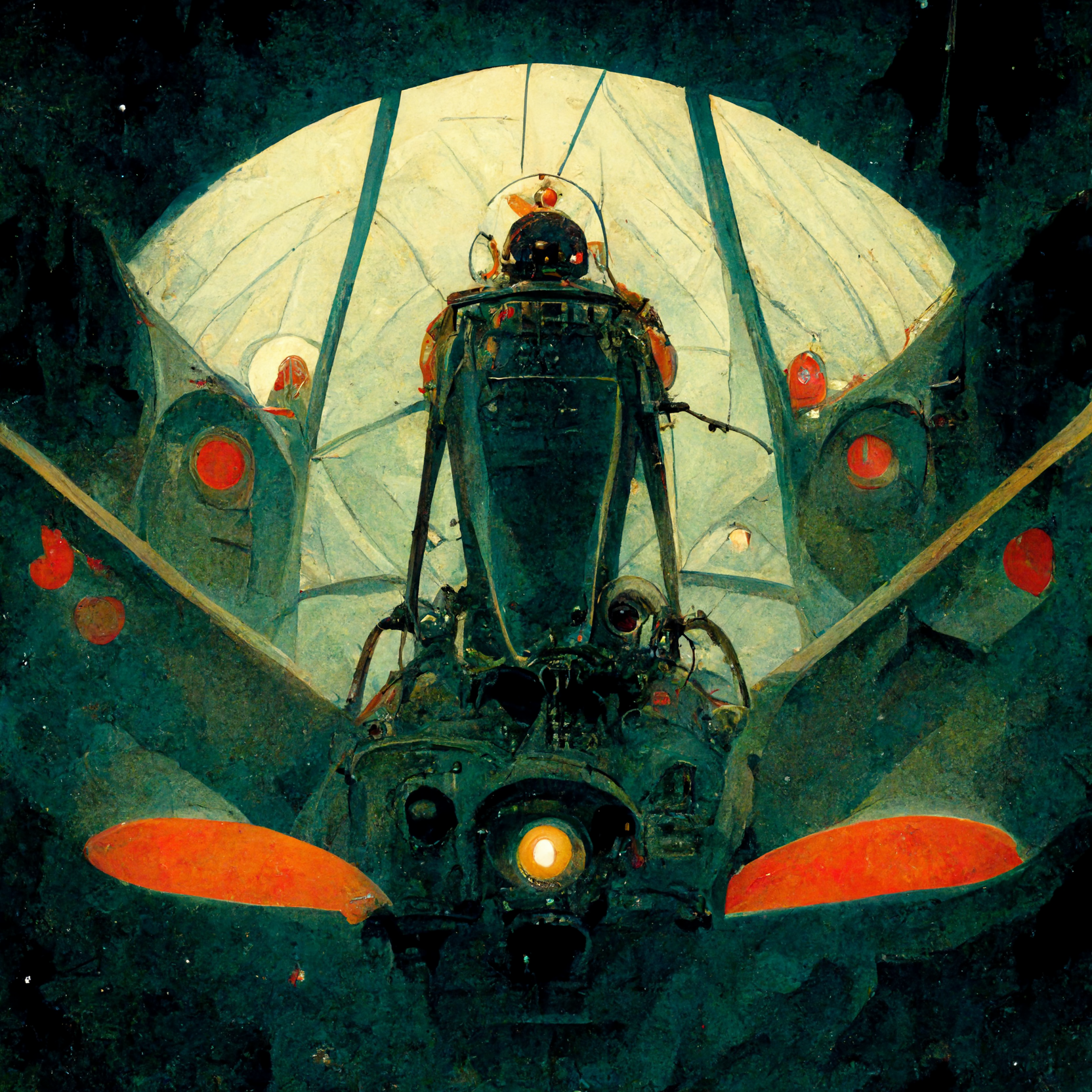BEELZEBUB’S TALES (2)
By:
February 27, 2023

Beelzebub’s Tales to His Grandson (dictated 1924–1927, and thus a work of Radium Age proto-sf, although it wouldn’t see publication until after the author’s death in 1949) is the first section of a never-completed magnum opus to be titled All and Everything. Gurdjieff would later explain that through this work he intended “to destroy, mercilessly, without any compromises whatsoever, in the mentation and feelings of the reader, the beliefs and views, by centuries rooted in him, about everything existing in the world.” HiLoBooks is pleased to serialize a selected excerpt from Beelzebub’s Tales here at HILOBROW.
ALL INSTALLMENTS: 1 | 2 | 3 | 4 | 5 | 6 | 7 | 8 | 9 | 10.
BOOK I
CHAPTER II: Prologue. Why Beelzebub was in our solar system (cont.)
Although the solar system Ors had been neglected because of its remoteness from the Center and for many other reasons, the Most Holy Cosmic Individuals surrounding our Common Father Endlessness had sent Messengers from time to time to the planets of this solar system, to regulate more or less the process of existence of the three-brained beings arising there, and to bring it into accord with the general world harmony.
And thus to one of the planets of this solar system, the planet called “Earth,” a Messenger was once sent from our Endlessness a certain Ashiata Shiemash And as Beelzebub had fulfilled a special task indispensable to his mission, this Messenger, upon his return to the Sun Absolute, earnestly besought His Endlessness to pardon the once young and fiery but now aged Beelzebub.
In view of this request of Ashiata Shiemash, and also of the modest and conscious existence of Beelzebub himself, our Maker Creator pardoned him and gave him permission to return to the place of his arising.
And so it was that now, after a long absence, Beelzebub was again in the Center of the Universe.
His influence and authority, far from having declined during his exile, had on the contrary greatly increased, since all those around him clearly recognized that, thanks to the long years he had spent in unaccustomed conditions, his knowledge and experience had inevitably been broadened and deepened.
And so, when events of great importance occurred on one of the planets of the solar system Pandetznokh, Beelzebub’s old friends decided to intrude upon him and invite him to the conference concerning these events.
And that is why Beelzebub, with his kinsmen and attendants, was now making the long journey on the space ship Karnak from the planet Karatas to the planet Revozvradendr.
At the time to which our tale refers, all those aboard the big space ship Karnak were occupied either with their duties, or simply with actualizing what is called “active being-mentation.”
Among the passengers one very handsome boy stood out; he was always near Beelzebub himself.
This was Hassein, the son of Beelzebub’s favorite son, Tooloof.
After his return home from exile, Beelzebub had seen his grandson Hassein for the first time and, appreciating his good heart — and also owing to what is called “family attraction” had taken an instant liking to him.
And as the moment happened to coincide with the time when the Reason of young Hassein needed to be developed, Beelzebub, now having a good deal of free time, took charge of the education of his grandson himself, and from then on kept Hassein with him wherever he went.
For his part, Hassein so loved his grandfather that he would not stir a step without him, and eagerly absorbed everything he said or taught.
As this narrative begins, Beelzebub, Hassein, and Ahoon, the devoted old servant who always accompanied Beelzebub everywhere, were sitting on the highest “kasnik,” or upper deck, of the Karnak under the “kalnokranonis,” a sort of glass bell, talking among themselves while observing the boundless space.
Beelzebub was speaking about the solar system where he had spent many years. He was describing the peculiarities of the nature of a planet called “Venus.”
During the conversation, word was brought to Beelzebub that the captain of the ship wished to speak with him, and Beelzebub gave his consent.
RADIUM AGE PROTO-SF: “Radium Age” is Josh Glenn’s name for the nascent sf genre’s c. 1900–1935 era, a period which saw the discovery of radioactivity, i.e., the revelation that matter itself is constantly in movement — a fitting metaphor for the first decades of the 20th century, during which old scientific, religious, political, and social certainties were shattered. More info here.
SERIALIZED BY HILOBOOKS: James Parker’s Cocky the Fox | Annalee Newitz’s “The Great Oxygen Race” | Matthew Battles’s “Imago” | & many more original and reissued novels and stories.
